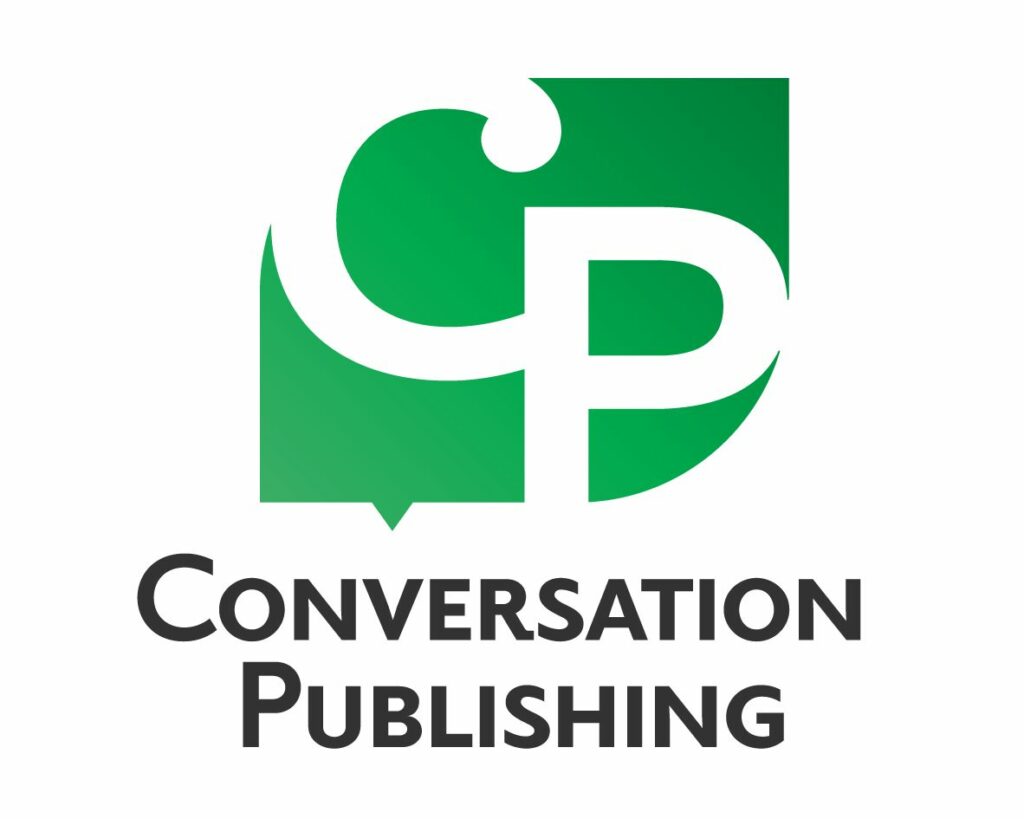A Strategic Business Book, Authored by You
“Why do you want to write this book?” I asked.
Pat shifted in his chair. Up until this point in our conversation, he’d been talking a mile a minute, reading from his notes and sharing ideas for his book-to-be. Like many entrepreneurs, Pat had no shortage of ideas or enthusiasm. But this question made him pause. He looked up from his notes.
“I want to write a book,” he said, “because I’ve always wanted to write a book. I love reading books, and now is a good time for me because I’m at a place in my career where I can do whatever it takes to write and publish a great book.”
I nodded. Then I said something that surprised him: “Pat, you just gave me three non-answers.”
He locked eyes with me. “How so?”
“The operative question for us,” I said, “is ‘why do you want to write this book?’ As your editor, you and I shouldn’t be discussing just any book. We need to talk about this book — this one in particular. The one you must write today. The one your target readership must read. The book that’s urgent to your industry and top of mind in all the conversations you’re having with customers, employees, and partners. That’s the book we should discuss writing today.”
As an editor and publisher in the publishing industry, it’s a question I’ve asked thousands of times, to entrepreneurs and thought leaders like Pat: Why write this book?
Most authors-to-be respond similarly, with good ideas but little direction.
Very few authors know exactly what they want to say and how to say it.
Even fewer know exactly who to say it to, and why.
This lack of direction presents a huge missed opportunity. Authors who aren’t clear up front about who they’re writing for and why, are authors who rarely achieve the goals they have for their book. Sure, they may end up publishing a book. But they’ll have missed the opportunity to author the book that can help them achieve their goals.
The term I use to describe the type of book an author must write today is a strategic business book.
Why Write a Strategic Business Book?
A book that connects an author to their target niche readership for the purpose of achieving a strategic goal is a strategic business book.
If you are an experienced professional with wisdom to share, and you have a personal or professional goal to achieve in the next few years, then you can author a strategic business book.
You’ve read strategic business books before. If you were the intended reader of such a book, then I’m sure you gained from it plenty of valuable wisdom and practical insight. If you weren’t the target reader, then it’s likely the book made you shrug. Or even had you asking, “why would anyone write this?”
What you may not realize, is that the author published the strategic business book to achieve a specific goal, for a specific type of reader, living in a specific time and place. This book isn’t very helpful for everyone — and that’s the point. Because, by design, this book is very helpful for a select few.

Business books are more common than ever. We’re living in a new era of publishing, one where technological disruption has forever upended the traditional publishing industry of generations past. Self-publishing has grown from its early days to become a legitimate way for authors to share their knowledge and experience with others. It’s become so attractive largely because authors own 100 percent of their content, determine 100 percent of their messaging, and control 100 percent of their book’s marketing and publicity.
Business books are more common than ever. We’re living in a new era of publishing, one where technological disruption has forever upended the traditional publishing industry of generations past. Self-publishing has grown from its early days to become a legitimate way for authors to share their knowledge and experience with others. It’s become so attractive largely because authors own 100 percent of their content, determine 100 percent of their messaging, and control 100 percent of their book’s marketing and publicity.
When a traditional publishing house publishes a business book, it needs to have mass appeal. To sell at least 10,000 copies in a year, it’ll need to appeal to an audience in the hundreds of thousands. With such a broad audience, very few books can likewise share deep subject matter expertise and demonstrate practical knowledge for the target readers who need it. Authors compromise in traditional publishing because the publishing house’s editors are concerned with broad appeal, not niche appeal.
The good news is that there’s no longer any real reason to publish a book for the masses. By definition, mass market appeal isn’t a strategic business goal. Additionally, those same mass market limits apply to the book’s messaging and its marketing. For the vast majority of authors working with a traditional publishing house, few actually enjoy the benefits of mass marketing and publicity. The opportunity to connect with the author’s niche is lost in pursuit of the broadest appeal.
For Pat from the opening story, his niche was his customer base. Pat was a wealth advisor and owner of a financial planning firm based in a smaller market. His customers were based locally and from the surrounding region. Pat had a sparkling reputation and deep industry experience, having worked on Wall Street and run his own firm for decades. But he wasn’t a nationally famous wealth advisor. So he didn’t need a book that appealed to every reading adult from coast to coast.
As manager of an entrepreneurial firm of about 50 employees, which managed about $200 million in assets, Pat’s business goals over the next five to ten years weren’t the same as those of a Wall Street firm that managed billions. His business goals were suited to a company of his scale in his community and industry.
After speaking with Pat and his in-house marketing executive, Rashida, we determined his strategic goal for at least the next three years was to target Millennials, who were becoming a larger portion of his customer base, after years of serving primarily Baby Boomer and Gen Xers. In conversations with these younger customers, Pat and Rashida realized that Millennials had somewhat different goals, priorities, and expectations than customers of other generations. And, interestingly, most had moved to the area recently, and so were looking for a wealth advisor who had a reputable presence both online and at the office, as opposed to relying on finding one through a referral.
Pat and Rashida had spent the previous six months working to revamp their website, social media presence, and in-house material to appeal to Millennials, especially those new to the area. However, they realized that something was missing. Despite their best efforts, they still lacked the credibility and presence that a book brings to the table.

Pat and Rashida weren’t blind to the fact that their customers would be unlikely to read the book. Like the rest of us, they know that few people read books anymore. Few of us turn off the phone and make time to have a lazy afternoon in a cozy chair, settling in to read a 350 page business book.
Business book readers are business people — we’re busy. We’re always in motion. At best, we read a chapter a day, usually first thing in the morning as a meditative way to jumpstart our day, or at night before bed to unwind. Most of us read when traveling, on a long flight — or we listen to an audiobook on our commute. Strategic business books are designed to appeal to such a busy reader.
The publishing industry’s secret is that nobody reads a book cover to cover anymore. People read a chapter or two, get the value they need, then move on. Perhaps if the book is beloved they’ll return to it again at a later time.
So the magic of a strategic business book is it should entirely connect your message to your reader in just one or two chapters. For different readers, different chapters will have more appeal, so every chapter must be at the same level of quality, or you’ll turn off potential readership.
This fact makes a strategic business book more akin to a TedTalk. A piece of valuable, niche, potentially life-changing content, meant to be digested in a short amount of time. Such books are digestible because they are usually around 150 to 200 pages, which readers can enjoy in the same amount of time as a cross country flight. And valuable because the author shares his or her wisdom and the experiences of an actual industry veteran and subject matter expert.
Business books are no longer the stodgy, stuffy, research-driven, numbers-heavy books written only for MBAs. They’re must-reads for anyone in your target niche.
How a Strategic Business Book Helps You Achieve Your Goals
So, let’s go back to the operative question: “Why this book?”
Pat’s answer was: “Because I need to show potential Millennial customers new to our area why I understand their goals, priorities, and expectations, and how this understanding can bring them enormous value.”
“That,” I said to Pat, “is exactly why we need to write this book.”
Over the next few months, Pat, Rashida, and I worked together to develop this book, from its paper-napkin idea to a 40,000 word manuscript.
Then, Pat worked with a hybrid publisher to help him design, print, distribute, and fulfill his printed book. The best hybrid publishers are teams of senior creative and business professionals. Creatives who design a book that looks as good (or oftentimes better) than a traditional publisher. Printers who can get 500 paperback on-demand copies sent to your office and another 500 available for you (and anyone) to buy online through Amazon and Barnes and Noble.
The other day, I saw on Pat’s LinkedIn page a two minute video of him speaking at a regional conference, as a keynote speaker helping explain to others in his industry the value of appealing to Millennials. His book’s cover was projected onto the screen behind him, and copies were for sale at a table in the back of the room. I messaged Pat, congratulating him on his success. I was thrilled by his reply: “Thank you for helping me write this book.”

Like Pat, you have a goal to achieve and a strategy in place to achieve the goal. To execute the strategy, you’ll need to connect your message to the right people.
So, if you want to write a book, then don’t write one because you’ve always wanted to. Or because you love reading. Or because you finally have the time (you don’t).
Write it because you have a strategic goal and necessary wisdom to share with your niche. Write it because you must write it, and you have readers who must read it. Write it because it isn’t just any book — it’s the one book that’ll help you achieve your goal.

